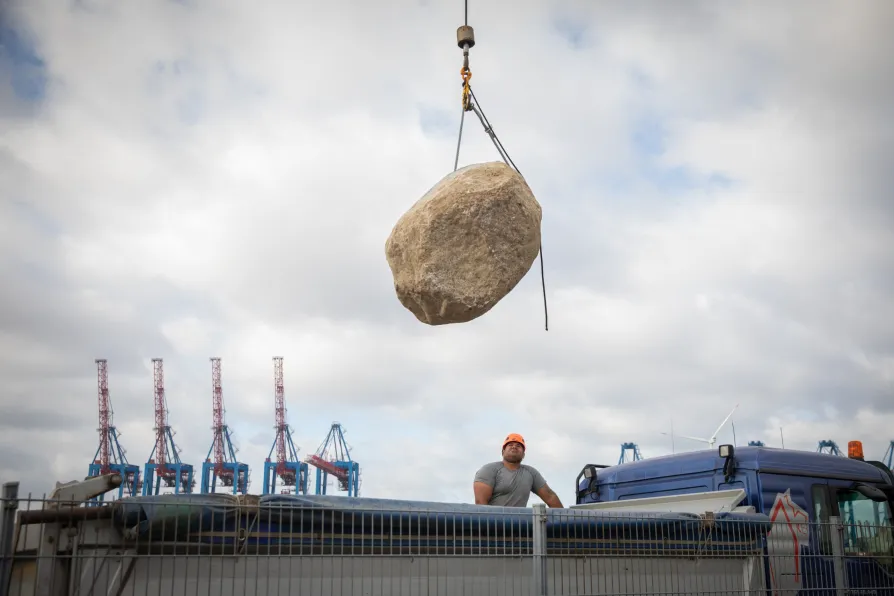Greenpeace to drop boulders off Cornish coast to protect against destructive fishing

 A boulder is loaded onto the Greenpeace ship, the Esperanza at the docks in Hamburg, Germany. The boulders were placed into the North Sea in the Dogger Bank Marine Protected Area in September 2021.
[Suzanne Plunkett / Greenpeace]
A boulder is loaded onto the Greenpeace ship, the Esperanza at the docks in Hamburg, Germany. The boulders were placed into the North Sea in the Dogger Bank Marine Protected Area in September 2021.
[Suzanne Plunkett / Greenpeace]
GREENPEACE is set to create an underwater barrier off the coast of Cornwall in a bid to protect a rare seabed habitat from destructive trawler fishing.
The environmental group has described the action as a last resort, warning that time is running out to save Britain’s oceans from industrial fishing, habitat destruction and climate change.
Activists plan to create the barrier by dropping huge boulders from Greenpeace’s ship Arctic Sunrise in the South West Deeps, a designated so-called marine protected area 200 miles off the Land’s End peninsula, the group announced yesterday.
Similar stories














